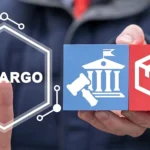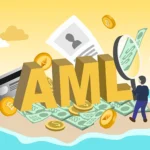In this blog, we explore OFAC sanctions, detailing their types, scope, and application. Learn about comprehensive and selective sanctions, including the SDN List, sectoral and restricted parties lists, and targeted sanctions. Understand how OFAC enforces these sanctions to achieve national security and foreign policy goals. Discover how a domain-centric approach can enhance your OFAC compliance efforts.
Economic and trade sanctions are one of the ways the United States uses to deter and penalize human rights violations, state-sponsored criminal activities, or breaches of international laws.
The Office of Foreign Assets Control (OFAC) U.S. Department of the Treasury imposes these sanctions on countries, entities, or individuals. This blog covers various OFAC sanctions programs the US imposes to accomplish its national security and foreign policy goals.
What is OFAC and What Does it Do?
OFAC of the U.S. Department of the Treasury enforces economic and trade sanctions against foreign countries and regimes, terrorist organizations, international narcotics traffickers, persons or entities engaged in activities related to the proliferation of weapons of mass destruction, human rights violation, and other threats to the US national security, foreign policy, or economy.
Sanction Types and Who Do they Apply?
The sanctions apply to all US citizens, including US permanent residents, who are subject to US jurisdictions, regardless of their location. All US-based entities, including their subsidiaries and foreign branches, are also subject to sanctions.
OFAC administers several different sanctions programs, which can be comprehensive or selective. These sanctions impose mandates for blocking assets and apply trade restrictions to achieve national security and foreign policy goals.
The following is an outline of the types of sanctions:
1. Comprehensive Sanctions (Targeted Against Countries)
Comprehensive sanctions generally prohibit activities, including customer relationships and financial transactions or products, with individuals and entities located in a country or geographic region.
a) These programs include blanket prohibitions on most commercial activity, an activity involving goods or vessels of sanctioned country origin, and activity with government officials and their agents.
b) OFAC’s Specially Designated Nationals and Blocked Persons List (“SDN List”) contains ~6300 names. Besides the SDN list, OFAC also maintains several other sanctions lists.
c) North Korea, Syria, Cuba, Iran, and the Regions of Ukraine: Crimea, Donetsk, and Luhansk are the countries and regions that are currently subject to OFAC sanctions.
d) In addition to the sanctions administered by OFAC, the U.S. government maintains separate export control regulations prohibiting all exports and re-exports of U.S.-origin items, such as goods, software, and technology, to these comprehensively sanctioned countries/regions.
2. Selective Sanctions (Targeted at Specific Entities or Individuals)
Selective sanctions prohibit specific individuals and entities that are named in OFAC’s SDN list. The list is continually updated by the U.S. Department of the Treasury. OFAC prohibits U.S. citizens, businesses, and corporations from transacting with Specially Designated Nationals and Blocked Persons (SDNs). The list also serves as a notice for US citizens to block any property or interest in property that belongs to a person or entity in the SDN list.
SDNs can be situated anywhere in the world. They may include front individuals, parastatal entities, and companies owned or controlled by, or on behalf of, or acting for targeted countries, groups, or specially identified individuals such as narcotics traffickers or terrorists.
A. List-Based Sanctions
a) List-based sanctions prohibit activity involving individuals or entities that OFAC has listed as Specially Designated Nationals (SDNs).
b) Comprehensively sanctioned countries also employ a list-based component; however, not all lists of SDNs are affiliated with a comprehensively sanctioned country. For example, the comprehensive Syria program also has a list of SDNs, but the Counter Narcotics Trafficking Sanctions contain parties located in various countries. Entities owned 50% or more, individually or in aggregate, by SDNs must also be treated as SDNs.
B. Sectoral/Limited Sanctions
a) OFAC maintains more limited sanctions against a few additional countries where sanctions may apply depending on entity/individual/organization/item/industry (i.e., sectoral sanctions).
b) The Sectoral Sanctions Identifications List (SSI List) is administered by the U.S. Department of the Treasury, Office of Foreign Assets Control (OFAC). The SSI list includes persons operating in sectors of the Russian economy, ranging from finance to petrochemicals to aerospace. The SSI List is not included within the SDN List but may overlap.
c) The SSI sanctions prohibit certain types of activity with entities listed by OFAC as SSIs, primarily dealing in new debt or equity of such entities outside certain parameters.
d) Countering America’s Adversaries Through Sanctions Act (CAATSA) – Under this federal law, the American government can impose sanctions on any country that has “significant transactions with Iran, North Korea or Russia”. The law entails economic & financial penalties for any nation that transacts with Russia on arms.
C. Restricted Parties Lists
a) The U.S. government also imposes sanctions and other trade restrictions on individuals, entities, and organizations that have violated U.S. export control laws, participated in proliferation activities, are determined to be terrorists or terrorist organizations affiliated with certain sanctioned governments, etc.
b) These lists are collectively known as “Restricted Parties Lists.” The most significant of these are OFAC’s lists of sanctioned entities and individuals, including the Specially Designated Nationals and Blocked Persons (SDN) List, Foreign Sanctions Evaders (FSE) List, and the Sectoral Sanctions Identification (SSI) List.
D. Targeted Sanctions
a) Targeted sanctions generally prohibit United States persons from transacting with an individual or entity designated by the State or Treasury Departments pursuant to the individual listing criteria under a specific sanction’s regime, such as the Terrorism Sanctions and the Foreign Narcotics Kingpin Sanctions.
b) These sanctions aim at specific, named individuals, such as key leaders in a country or territory, named terrorists, significant narcotics traffickers, and proliferators. These sanctions often include freezing assets and travel bans, when possible.
Domain-Centric Approach to Meeting Compliance with OFAC Sanctions
Considering the vast and evolving sanctions landscape, financial institutions must be aware of the mandates and adopt the necessary measures. A pragmatic, domain-centric approach can help financial institutions build a robust policy framework and response mechanism to mitigate the risks of violating the sanctions.
As a strategic partner, Anaptyss can help financial institutions with tailored guidance and a domain-centric consultative approach to transform their OFAC sanctions compliance capabilities and risk scores.
Want to connect with us to learn more about OFAC sanctions and compliance strategies? Write to us: info@anaptyss.com.


















